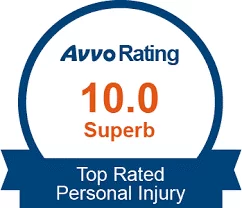In personal injury cases, mediation is an option that many people are not fully aware of. In fact, in some states or district courts across the US, mediation is mandatory as a pre-trial process. So, let’s take some time to understand the basics of mediation in a personal injury case.
What is Mediation?
Mediation is a form of dispute settlement between the case parties, facilitated by a neutral third-party. It empowers litigants to decide the outcome of a case outside of the court’s process by allowing each side to talk without legal hold-ups and alleviating the risk of their case verdict being overturned by a judge. Out of court mediation and settlement is a quick and effective way to move past a tedious trial, and comes with its pros and cons.
Mediation is not an output-based process and can be skipped in cases where the parties realize that there isn’t a mutually agreed position for everyone. In such cases, parties may skip or quit mediation and directly move to trial. However, parties then cannot use any new information obtained during mediation for court proceedings. To this reason, all parties attending mediation need to sign Confidentiality Agreements under Georgia’s Code 15-11-22.
What do I need to know about a mediation conference?
- You will need an experienced personal injury lawyer. While a mediation conference is less formal than a court proceeding, you will need a lawyer to manage the various tasks in a professional way. Your lawyer will develop an outline of the case, supported by necessary documents, filings and reports to offer a holistic background for the case at hand, which forms the basis of the mediation process
- The defendant may or may not be present. The defendant is usually only represented by their lawyer at a mediation process. Even if the defendant is present, there will be no cross-questioning by the lawyers and the defendant will remain silent through the process.
- An insurance representative will be present. Your insurance company will have a claims adjuster attend the mediation conference, with the goal to get only the medical bills covered by the insurance company
- You will hear statements from the opposite party that you disagree with. During the opening statements, as well as following proceedings, you may hear statements from the opposing lawyer that you disagree with. It is important that you remain calm and let your lawyer lead the dialogue. Remember, the goal of mediation is to avoid a long, tiring trial and work things out in a cordial and respectful manner
- Mediation also takes some time. While it may not be as exhausting as s full-blown trial, a satisfactory mediation process can take anywhere from a couple of hours to an entire day. Fortunately, one of the initial asks from both lawyers is an ideal settlement figure and that helps steer the dialogue towards a solution. However, patience is key and will be rewarded.
- The Mediator must and will remain neutral. One of the key aspects of a mediation process is that the mediator must be jointly picked by all the parties and must be a thoroughly neutral force. The mediator’s only job is to get to a fair settlement point as quickly as possible. This is also specified in code 15-11-22 mentioned above for the state of Georgia.
- You will have to accept a compromise. One of the cornerstones of the mediation process is that you won’t get 100% of things your lawyer demands in your opening statement. Work with your lawyer on what is an optimum settlement that you will want through the mediation and the course of actions to take if you don’t reach that.
Mediation is an extremely productive process if (a) both parties are looking at the same information and have shared facts crucial to the case in good faith; (b) both parties are represented by and listen to their experienced counsel; and (c) both sides have expressed a serious commitment to reaching a resolution.
Contact a Trusted Mediation Attorney
Are you worried about a personal injury case and want to discuss mediation as an option? Getting an experienced lawyer to represent you is the first step to avoiding a tiresome court proceeding and getting your due for the damage caused. Attorney Riah Greathouse holds over a decade of experience in civil and criminal cases in Georgia. Contact him to discuss the specifics of your case and understand your options.


